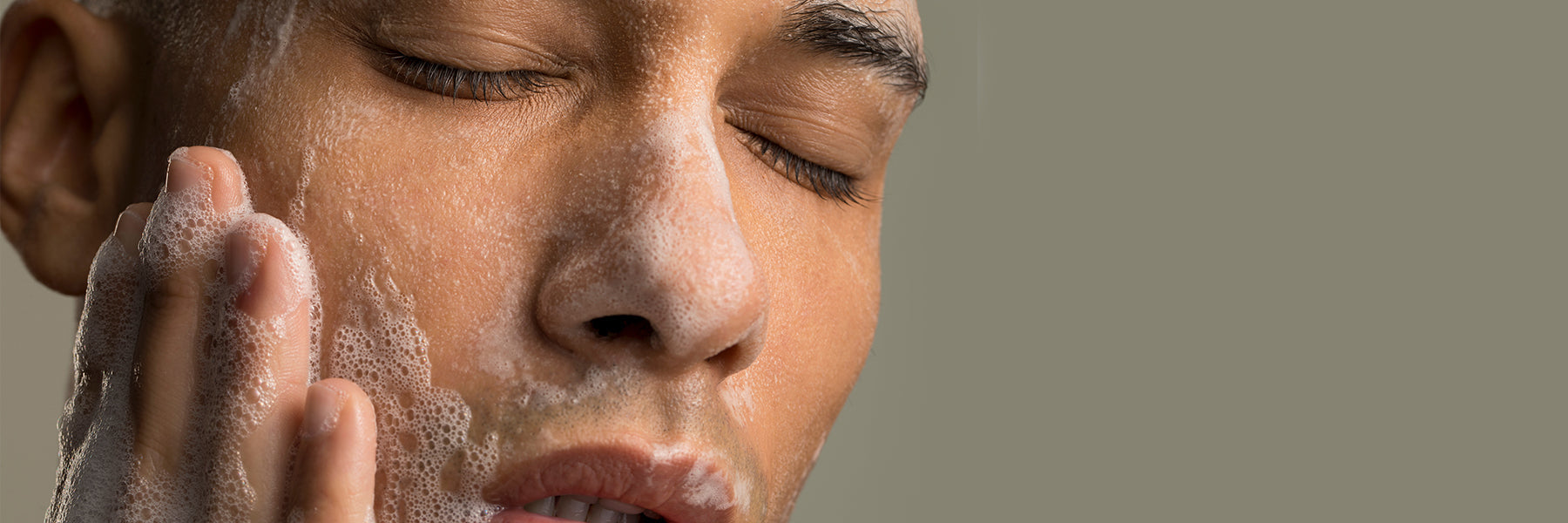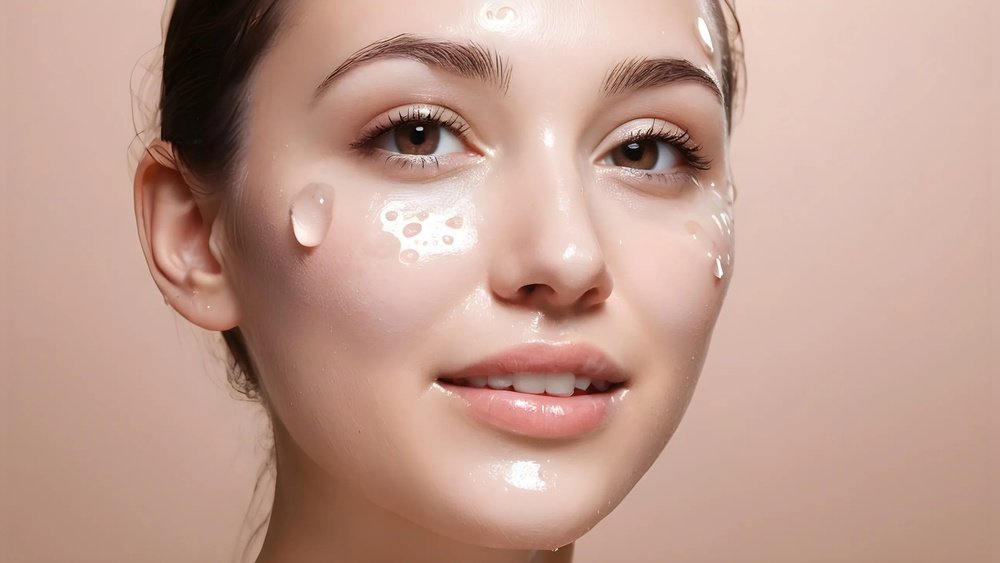Have you ever washed your face only to feel tight, dry, or even irritated afterward? That uncomfortable sensation might be a red flag telling you your cleanser is too harsh.
Choosing the right cleanser is more than just picking one off the shelf—it’s about understanding how your skin reacts and protecting its natural balance. You’ll discover simple but powerful ways to tell if your cleanser is doing more harm than good.
Keep reading to learn how to spot the warning signs and switch to a gentler, skin-friendly routine that leaves your face feeling fresh, hydrated, and healthy every single day.
Signs Of Tightness And Dryness
Knowing the signs of tightness and dryness helps identify if a cleanser is too harsh for your skin. Cleanser should clean without stripping natural oils. Overly harsh cleansers remove too much moisture. This leads to discomfort and skin problems.
After washing, your skin might feel tight or stretched. This sensation means your skin barrier is compromised. Dryness often follows tightness, causing flaky or rough patches. Recognizing these signs early prevents long-term damage.
Feeling Of Tightness After Washing
Your skin feels like it is pulling or shrinking. This tightness shows the cleanser removed essential oils. Healthy skin should feel clean but soft. Tightness is a warning that the cleanser may be too strong.
Visible Dryness And Flaking
Dry spots or flakes appear soon after cleansing. These areas look rough and uneven. Harsh cleansers strip moisture, causing the skin to lose its smoothness. Dryness is a clear sign your skin needs gentler care.
Increased Sensitivity And Redness
Skin becomes more sensitive or red after use. This reaction shows irritation from harsh ingredients. Sensitive skin needs mild cleansers that soothe instead of aggravate. Redness and stinging point to a cleanser that is too harsh.
Skin Feels Uncomfortably Dry Throughout The Day
Dryness lasts long after cleansing and moisturising. This indicates damage to the skin’s moisture barrier. The skin cannot hold water, leading to constant dryness. A good cleanser keeps skin balanced, not dry all day.

Credit: www.reddit.com
Redness And Skin Sensitivity
Redness and skin sensitivity are common signs that a cleanser may be too harsh. These symptoms show that the skin’s protective barrier is damaged. When this barrier weakens, the skin can become irritated and inflamed easily.
Some cleansers contain strong ingredients that strip away natural oils. This can leave the skin feeling tight, dry, and red. Sensitive skin types react faster and more strongly to these ingredients.
How Redness Indicates Skin Irritation
Redness often appears shortly after cleansing. It means the skin is inflamed or irritated. This reaction can be mild or severe depending on the cleanser’s strength.
Persistent redness after washing is a clear warning sign. It shows that the skin is struggling to recover from the cleanser’s effects.
Signs Of Increased Skin Sensitivity
Sensitivity can feel like stinging, burning, or itching. These sensations happen because the skin barrier is compromised. Harsh cleansers can cause these feelings by removing too much moisture.
Skin may also become more reactive to other products or environmental factors. This sensitivity leads to discomfort and visible irritation.
Choosing Cleansers For Sensitive Skin
Look for cleansers labeled as gentle or for sensitive skin. These products avoid harsh chemicals like sulfates, alcohol, and fragrances. They help protect the skin barrier while cleansing.
Using a mild cleanser reduces redness and sensitivity. It supports healthy, balanced skin without causing irritation.
Increased Breakouts And Irritation
Increased breakouts and irritation often signal a cleanser is too harsh for your skin. Instead of clearing your skin, a harsh cleanser can cause redness, dryness, and more pimples. This happens because strong cleansers strip away natural oils and damage the skin’s protective barrier.
When the skin barrier weakens, bacteria and irritants can enter more easily. This triggers inflammation and leads to breakouts. Irritated skin might feel tight, itchy, or burning after washing. These signs show the cleanser disrupts your skin’s balance.
Why Harsh Cleansers Cause Breakouts
Harsh cleansers remove too much oil from the skin. The skin reacts by producing extra oil to compensate. This oil clogs pores and creates an environment for acne bacteria to grow. The result is more frequent and severe breakouts.
Signs Of Irritation From A Cleanser
Redness, stinging, and flaking are common signs of irritation. Skin may look blotchy or feel sore to the touch. These symptoms appear soon after cleansing and last for hours or days. They show the cleanser is damaging your skin’s surface.
How To Protect Skin From Harsh Cleansers
Choose cleansers with gentle ingredients and no strong chemicals. Look for formulas labeled “for sensitive skin” or “hydrating.” Using a mild cleanser helps keep the skin barrier healthy and reduces the risk of breakouts and irritation.

Credit: sulinashop.com
Compromised Moisture Barrier
The moisture barrier protects your skin from dryness and irritation. It keeps skin hydrated and healthy. A harsh cleanser can break down this barrier. This causes your skin to lose moisture quickly. You may feel tightness or dryness after washing your face.
When the moisture barrier is damaged, skin can become red and flaky. It may also feel rough or sensitive to touch. Over time, the skin may produce more oil to compensate. This leads to an oily, uneven complexion. It is important to recognize these signs early.
What Is A Compromised Moisture Barrier?
The moisture barrier is a thin layer of oils and lipids. It seals in moisture and blocks harmful elements. This barrier keeps skin soft and smooth. Harsh cleansers strip away natural oils. This weakens the barrier and allows moisture to escape.
Signs Your Moisture Barrier Is Damaged
Your skin feels tight or dry after cleansing. Flaky patches appear on your face. Redness or irritation shows up easily. Skin feels sensitive or itchy. Oiliness increases despite dry patches. These are common signs of damage.
How Harsh Cleansers Harm Your Skin
Cleansers with sulfates, alcohol, or fragrances are often too strong. They remove natural oils needed for skin health. This causes dryness and disrupts the barrier. Over time, the skin loses its ability to protect itself. This leads to long-term sensitivity and dehydration.
Harsh Ingredients To Avoid
Knowing which ingredients make a cleanser too harsh helps protect your skin. Some ingredients strip away natural oils. This causes dryness, redness, and irritation. Avoiding these harsh ingredients keeps your skin healthy and balanced.
Sulfates (sls And Sles)
Sulfates like Sodium Lauryl Sulfate (SLS) and Sodium Laureth Sulfate (SLES) create foam. They remove dirt but also strip natural oils. This leaves skin feeling tight and dry. Sulfates can cause redness and irritation, especially for sensitive skin.
Alcohol (denatured Or Sd Alcohol)
Alcohol in cleansers dries the skin quickly. It removes moisture and harms the skin barrier. This leads to flakiness and sensitivity. Avoid cleansers with alcohol if your skin feels dry after washing.
Artificial Fragrances
Fragrances make products smell nice but may irritate skin. They can cause redness and allergic reactions. Fragrance-free cleansers are safer for sensitive and dry skin types.
Harsh Exfoliating Particles
Some cleansers contain rough granules to scrub the skin. These particles can cause micro-tears and irritation. Gentle exfoliation is better for maintaining healthy skin.

Credit: feelsilki.com
Frequently Asked Questions
How To Know If A Cleanser Is Too Harsh?
A cleanser is too harsh if your skin feels tight, dry, or rough after use. Redness, irritation, and increased breakouts also signal harshness. Over time, harsh cleansers can strip natural oils, causing oiliness and a compromised moisture barrier. Choose gentle, fragrance-free formulas for healthy skin.
What Is Considered A Harsh Cleanser?
A harsh cleanser contains sulfates, alcohol, or fragrances that strip natural oils. It leaves skin tight, dry, irritated, or red.
How Do I Know If My Cleanser Is Irritating My Skin?
Signs your cleanser irritates skin include redness, tightness, dryness, increased sensitivity, and more breakouts after use.
How Do I Know If A Cleanser Is Gentle?
A gentle cleanser is fragrance-free, avoids alcohol and sulfates, and doesn’t leave skin tight or dry. It soothes without irritation or redness.
Conclusion
Choosing the right cleanser matters for healthy skin. Watch for tightness, dryness, or redness after washing. These signs mean your cleanser might be too harsh. A gentle formula keeps your skin soft and balanced. Pay attention to how your skin feels each day.
A mild cleanser supports your skin’s natural barrier. Taking care helps avoid irritation and dryness. Simple changes can improve your skin’s comfort and look. Trust your skin’s signals to guide your routine.
 Skip to content
Skip to content 